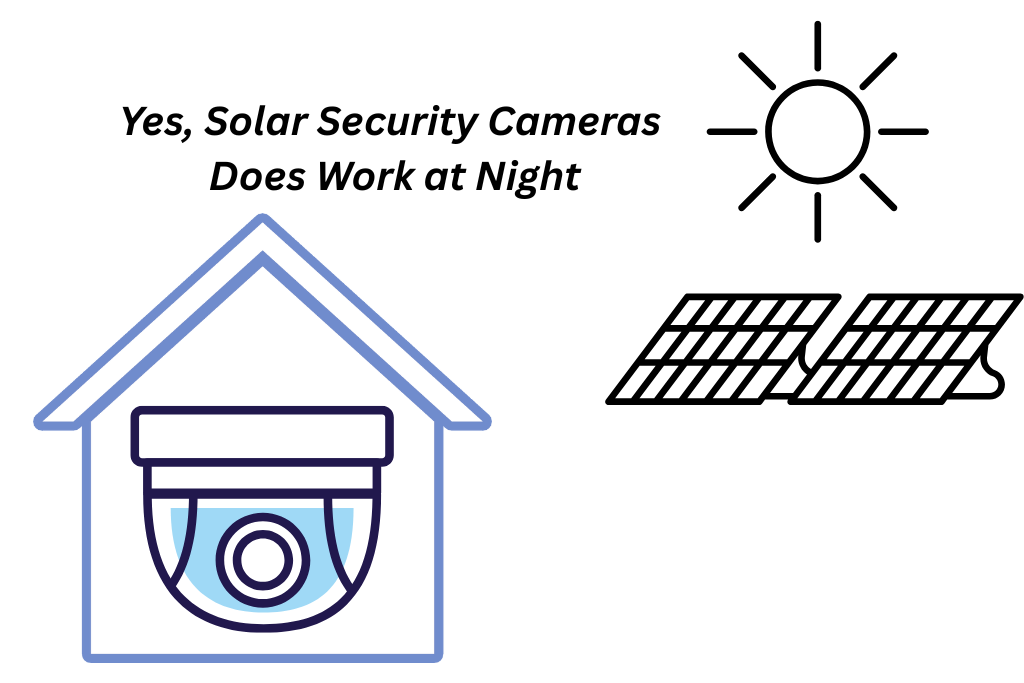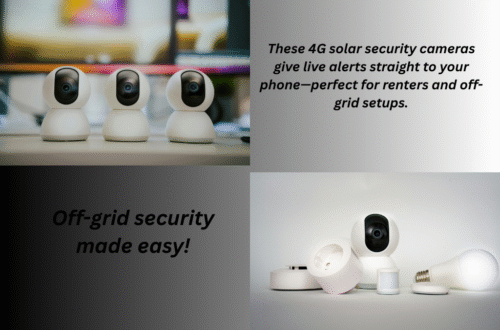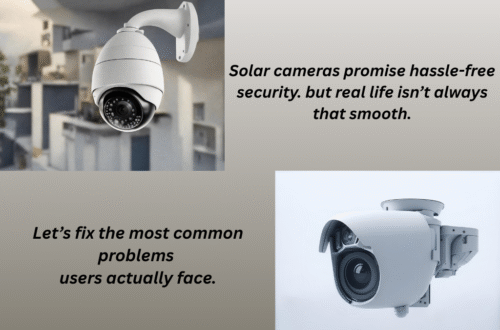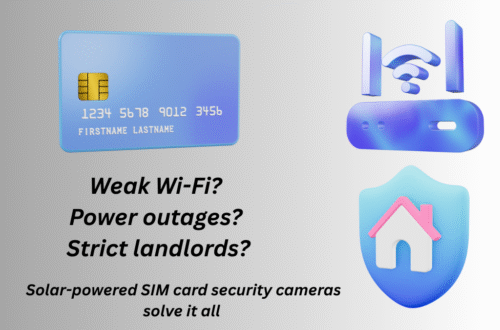
Can Solar Security Cameras Work at Night? Debunking Common Myths
It is a common misconception that solar security cameras may or may not work at night. The answer is yes, they do. First, we have to understand the concept of how solar security cameras work. Solar security cameras get energy in the form of electricity. They get this energy through solar panels. When sunlight hits the panels, the tiny particles of light (photons) push electrons around inside the panel. This movement of electrons creates electricity and supplies power to the camera.
Excessive sunlight means solar panels can generate more energy. However, there are certain myths surrounding the working capability of solar panels on rainy or cloudy days, as well as at night.
Solar panels can work in undesirable weather conditions and at night. The light energy that solar panels capture during the day not only powers the camera but also charges the batteries. These batteries continue to power the cameras during night and on rainy or cloudy days, but with less efficiency. Here, we simplified the whole process of how solar security cameras work at night:
- Solar panels collect sunlight during the day
- Batteries store the collected energy
- The camera operates at night or in the rainy season entirely off the battery.
However, if you have a solar security camera but no batteries, then the system won’t work once the sun goes down.
Why are some people against using Solar Security Cameras?
You might experience some users advising against using solar security cameras because:
They are unreliable in areas with low sunlight. This means that if you are living in a place where there is not enough consistent sunlight, then the battery will not be fully charged. Additionally, people equipped with high-power consumption cameras, such as pan-tilt-zoom cameras or spotlights, require more power. These cameras dry more energy, dry the battery rapidly. There is a critical security risk that occurs when batteries die at night, rendering the camera useless until it is recharged.
Let’s understand where these cameras work the most:
- In remote areas where wiring is impossible or very expensive. The battery-powered solar security cameras are a practical and affordable option.
- The property will have small-scale setups such as cabins, driveways, and farms.
- Eco-conscious users who want off-grid solutions.
For long-term reliability in remote spots:
- Calculate power usage and work out how much energy your camera and transmitter need per day.
- Get oversize batteries. Using bigger lead-acid or lithium batteries can last several days without charging.
- Keep two batteries and swap them weekly. One will run the system and the other will recharge at home.
- Store the battery underground or in a sealed box for protection. This way, you’re not fully dependent on daily sunlight.
How Solar Security Cameras Work at Night?
Here’s how solar security cameras work at night.
Night Vision Technology
- Most solar cameras (like ANRAN) use infrared (IR) LEDs.
- At night, the camera switches to black-and-white mode and uses IR to capture clear video in total darkness.
- Some also have built-in spotlights or LED lights for color night vision.
How Clear is the Video?
- Standard IR cameras can see beyond 30–100 feet in the dark, but in black & white
- High-end models with strong IR or exterior Illuminator can see up to hundreds of feet.
- Thermal or image-intensifying cameras can detect body heat or increase starlight, but they are very expensive.
Reliability
- Around-the-house cameras are reliable if the battery is well-charged and the IR range covers the area.
- For very dark, wide, or open fields, you may need stronger IR lights or external illuminators.
Debunking Myths
Let’s clear up the confusion by separating facts from myths.
Myth 1: Solar Cameras Stop Working at Night
Solar cameras get energy to charge their batteries. They don’t run directly on sunlight. Instead, they run on the battery. During the day, solar panels charge the internal battery. At night, these batteries power the camera. As long as the battery is charged, your camera can operate 24/7.
Myth 2: Solar Cameras Can’t Record in Complete Darkness
Most solar cameras include infrared (IR) and night vision. The IR night vision captures black and white video in low-light or no-light conditions. The color night vision comes with LED spotlights and provides full-color footage at night. The advanced solar cameras with laser IR or thermal provide even better vision at night. These cameras are used for high-end professional surveillance.
Myth 3: They Aren’t Reliable in Cloudy or Low-Sunlight Areas
Solar cameras can still work in less sunny regions, but you should be careful about the setup. A larger panel with higher capacity provides backup on cloudy days. In very low-sun areas, you will need to do experiments such as swapping batteries weekly or adding an external power source.
Myth 4: Solar Cameras Have Weak Power Supply
How much power a solar panel generates depends on the system’s design. The small solar cameras work well for basic home use. For high efficiency, you will need PTZ cameras. PTZ cameras require stronger panels and bigger batteries. If you focus on sizing, then you can make your solar cameras run continuously without any issues.
Our Top 3 Picks for You
Here are the best solar security cameras that you can choose from:
Blink Outdoor Solar Panel with Charging Mount
Blink, owned by Amazon, is a renowned name in home security. This device comes with an adjustable solar panel charging mount and a camera. The camera is powered by both solar panels and two AA batteries. It offers smart integration and is easy to install. However, the camera needs to be attached to the solar panel mount. It is the only drawback because sometimes it becomes difficult to mount them both at a place where they could get enough sunlight.
Eufy Security Solar Camera with Wall Light
The solar panel is attached directly on top of this camera, eliminating the need to dismount batteries more often. This camera is easy to install because it is wire-free and comes in one component. Its sensors turn on the flood lights and keep animals and intruders off your property. However, since it comes with flood light, the camera needs more energy to charge.
Ring Stick Up Solar Camera
Ring is another well-known brand. This stick-up camera can be mounted anywhere. It offers an adjustable arm to position it for better sun exposure. These solar security cameras are available at a reasonable price and with reliable customer ratings.
Conclusion
Your solar security cameras can work at night. Just choose the right model according to your needs. Also, get the right size of solar panels and batteries to keep them charged for long.




